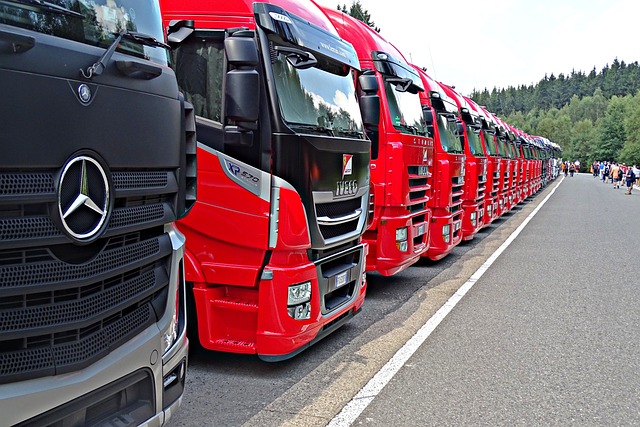Small fleet operators in trucking and cargo transportation should prioritize understanding their fleet insurance policy to secure the best coverage. Comprehensive fleet insurance offers a wide range of protections, including small fleet liability coverage for accidents and cargo protection plans for safe transit. Top-rated insurers provide tailored policies with clear language and multi-truck coverage options for growing fleets. Transparency in policy details, such as liability limits, deductibles, and exclusions, empowers operators to make informed choices, fostering trust and safer road practices.
In today’s complex business landscape, understanding policy terms and conditions is paramount, especially for small fleet operators navigating the intricacies of comprehensive fleet insurance. This article guides you through the process of prioritizing transparency and clarity in policy language to ensure optimal protection. From decoding key terms to exploring tailored policies and multi-truck coverage options, discover the benefits of informed decisions that lead to top-rated trucking insurance and robust risk management.
Understanding Your Policy Terms: Decoding Complex Language

Understanding your policy terms is a crucial step for small fleet operators looking to secure the best coverage. Fleet insurance, whether comprehensive or tailored to specific needs, often includes complex language that can be challenging to decipher. However, it’s essential to navigate these terms to ensure you have the right protection for your business and drivers. Terms like physical damage insurance, cargo protection plans, and small fleet liability coverage are critical components of a robust policy, offering comprehensive solutions for potential risks on the road.
Decoding these policies means recognizing key elements such as liability limits, deductibles, and coverage options like multi-truck coverage. By understanding what each term entails, small fleet operators can make informed decisions when selecting their top-rated trucking insurance or comprehensive fleet insurance. This empowers them to choose a policy that aligns with their business goals, offering the best value for money without compromising on essential protections.
– Key policy terms and their meanings

Policy terms and conditions are the backbone of any insurance agreement, especially for small fleet operators navigating the complex world of trucking and cargo transportation. Understanding these key phrases is essential to ensuring the best coverage for your business. Terms like “comprehensive fleet insurance” offer a wide-ranging protection package, addressing various risks from physical damage to theft or vandalism. It’s a top-rated option for those seeking peace of mind and robust defense against unforeseen events.
When it comes to “small fleet liability coverage,” this specific aspect focuses on protecting operators from financial losses due to accidents or legal issues arising from their vehicles. Cargo protection plans are also crucial, providing security for the goods being transported. These plans can cover loss, damage, or theft during transit, ensuring business continuity. “Tailored fleet policies” allow insurers to create customized solutions, considering the unique needs of small fleet operators, and offering flexible options like multi-truck coverage, catering to businesses with expanding fleets.
– Importance of comprehensible language for small fleet operators

For small fleet operators, using comprehensible language in policy terms and conditions is paramount. Often, these businesses are family-run or startups with limited resources, making complex insurance jargon a significant barrier to understanding their coverage options. Clear and concise language enables them to make informed decisions about their comprehensive fleet insurance choices, ensuring they receive the best coverage small fleet operators need. This approach fosters trust between insurers and policyholders, as small business owners can confidently navigate their policies, allowing them to focus on growing their operations rather than deciphering legalese.
The importance of transparency extends beyond individual operators; it positively impacts the entire trucking industry. When top-rated trucking insurance providers offer tailored fleet policies and multi-truck coverage options written in plain language, they empower small fleet owners to protect their investments effectively. This includes small fleet liability coverage for potential accidents or incidents involving cargo, as well as physical damage insurance to safeguard vehicles from mechanical failures or external damage. By promoting understanding, these practices lead to safer roads and stronger business resilience among small fleet operators.
The Cornerstone: Transparency in Fleet Insurance Policies

Transparency is the cornerstone of building trust between small fleet operators and their insurance providers. When it comes to fleet insurance, clarity in terms and conditions is paramount for businesses aiming for the best coverage. A comprehensive fleet insurance policy should offer not just physical damage insurance but also robust cargo protection plans, ensuring that every aspect of a small fleet’s operations is secured. By providing detailed information on liability coverage, excesses, deductibles, and exclusions, operators can make informed decisions tailored to their unique needs.
This transparency empowers small fleet owners to understand the scope of their coverage, including multi-truck coverage options designed for growing businesses. Top-rated trucking insurance should be flexible enough to accommodate the dynamic nature of small fleets, offering tailored fleet policies that grow and evolve with the business. Ultimately, prioritizing transparency fosters a relationship based on mutual understanding, enabling efficient risk management and peace of mind for small fleet operators.
In today’s complex transportation landscape, clarity and transparency are vital for small fleet operators to make informed decisions. By understanding key policy terms and prioritizing open communication, businesses can navigate the market effectively. Choosing the best coverage that aligns with their needs – whether it’s top-rated trucking insurance, comprehensive fleet insurance, or specialized cargo protection plans – ensures peace of mind. With tailored fleet policies, including physical damage insurance and robust liability coverage, operators can protect their assets and maintain a competitive edge. Remember, transparency is key to securing the most suitable multi-truck coverage options for your business’s unique journey.
